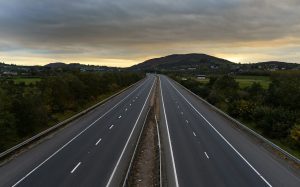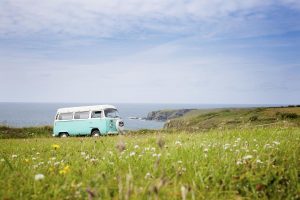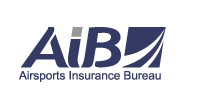DRIVING OUT OF LOCKDOWN

After a very strange, uncertain few months in a quieter world in lockdown, we are now seeing a slow return to normality. One thing that has remained certain however, is the need to keep your vehicle taxed, insured and properly maintained.
If you have been driving less and it looks like your vehicle use is still going to be much reduced, we have come up with a few tips and guidance points to help you navigate your way through a post-lockdown gear shift.
WHAT CHANGES SHOULD I FLAG UP WITH MY INSURANCE?
THE DAILY COMMUTE
Yes, you may be enduring or indeed loving, working from home at the moment. Trying to juggle home schooling or conducting business meetings over video calls (wearing business attire from the waist up of course) might mean your weekly commute has shrunk. Whilst saying a temporary goodbye to traffic jams and the daily grind is welcome, if your insurance covers SDPC (social, domestic, pleasure and commuting) you may want to call us if your vehicle use is going to change.
VEHICLE PARKING
Let us know if you are going to be keeping your vehicle somewhere different to that specified on your policy.
ANNUAL MILEAGE
Again, let us know if your anticipated mileage for the year is going to be much lower.
TO SORN OR NOT TO SORN, THAT… IS THE QUESTION…
If the pandemic means you’re not going to drive your car at all, you might want to consider taking it off the road altogether. A SORN is a Statutory Off Road Notification. Once a car has been declared as SORN, it must not be driven or even parked on a public road. You will need to keep your car on your driveway, in a garage or on private land. Otherwise, if you intend to drive your car at any time, even if it’s just to the local shop to get those all essential home working items (basically, tea/coffee/biscuits and lots of it), then usual rules apply: pay your vehicles tax, either through the Government portal – you will need the reference number from your vehicle tax reminder form (V11), or the vehicle code from your V5C or green ‘new keeper’ slip.Or pay at your local Post office.
BREAKDOWNS
AIB offer 3 levels of breakdown cover, To speak to one of our team you can call us on 02380 268351 for a competitive, tailored quote.
Both the AA and RAC have made it clear they are fully operational. By strictly following government and public health advice they have adapted their ways of working, including social distancing and the use of PPE. In the event of your vehicle needing to be towed, you can now travel safely within their vehicles again, however they are encouraging drivers to always carry a face covering. If you are self isolating/shielding or come into contact with the virus, bottom line, let the company know when you call them and they will do their upmost to get you back on the road as quickly as possible, armed with the correct knowledge of your situation.
 DRIVING EXPERIENCE, POST LOCKDOWN
DRIVING EXPERIENCE, POST LOCKDOWN
If you haven’t driven for a while during lockdown, you may want to familiarise yourself with driving again on quieter roads that you know well before attempting a longer trip. Be aware of other road users, particularly the increase in cyclists and walkers. Expect possible road modifications in cities to accommodate more cyclists or widening of pavements to accommodate social distancing and bus/cycle corridors.
Reassure yourself that your car is in good working order after being used less. MOTs due from 30th March 2020 have been given a 6 month extension but are still expected to be kept in a roadworthy condition. Giving your vehicle some TLC and carrying out some routine checks will ensure you feel confident about it’s safety. Here are some quick tips on what to check.
STAY HYDRATED
Ensure your car operates to the best of its ability by checking on it’s essential fluids: brake fluid, coolant, oil and windscreen wash.
RUBBER SOUL
Keep on top of the tread and condition of your tyres. There should be no cuts, or cracking visible and they should have at least 2mm of tread as the legal limit is 1.6mm. If you haven’t driven for a while, check your tyre pressures as it’s likely they will have gone down somewhat over time. Under inflated tyres can increase fuel consumption and affect braking performance.
BATTERY POWER
To ensure your battery doesn’t go flat through lack of use, get into the habit of periodically starting the engine and leaving it running for a little while. Another option to consider is investing in a trickle charger to keep your battery topped up. A trickle charger is a car battery charger designed to be left on a car for a long period of time to re-charge the battery. You would need proximity to a mains supply to use one so consider this before purchasing from a range of options online. Keep some jumpstart cables in your car in case of a flat battery whilst out and about.
LIGHT THE WAY
Part of any vehicle’s basic checks include the lights. Check your high beams, dipped and indicators and buy bulbs to replace them if any are out. If possible, ask someone to help you, including checking the brake lights are active, or park in front of a reflective surface such as a window, to see for yourself.
PUT THE BRAKES ON
Try your brakes gently before setting off to ensure they’re working properly. Whilst driving, listen for any crunching or grinding noises which may indicate corrosion.
DRIVING SOMEONE ELSE’S VEHICLE
You may have elderly parents, relatives or friends, or acquaintances that are vulnerable or high risk and are self isolating, or cautious about making their first foray back to the shops.
They ask you to do their shopping. You scan their shopping lists and then have to make that all important decision on Waitrose or Aldi… can you get away with a quick trip to the local corner shop… how far are you prepared to drive to find that rare type of spice they simply must have for their Friday stay-at-home curry recipe… however far you intend to go, if you’re not listed as a named driver on someone else’s policy, you can only drive their vehicle if you have their permission. You’ll also need a comprehensive insurance policy which includes ‘driving other cars’ (DOC), giving you the minimum legal standard of insurance (third party cover) in emergency situations only.
You could face strict penalties if you’re caught using another person’s vehicle without insurance or the owner’s permission so don’t risk it!
FILLING UP
Additional safeguarding whilst filling up has been recommended by Public Health England. Despite clarifying that motorists are at no greater risk of getting coronavirus from a pump than handling any other hard object, it’s wise to wear gloves and wash your hands after using the pumps to lessen any potential risks.
Individual fuel retailers are free to enforce their own rules on their forecourts, including use of face coverings so just be aware when you pop into the shop for that much needed travel snack and drink.
You can also pay by contactless at many pumps around the country, meaning you don’t have to go into the store itself and the limit on card use has been upped to £45.

You must be logged in to post a comment.